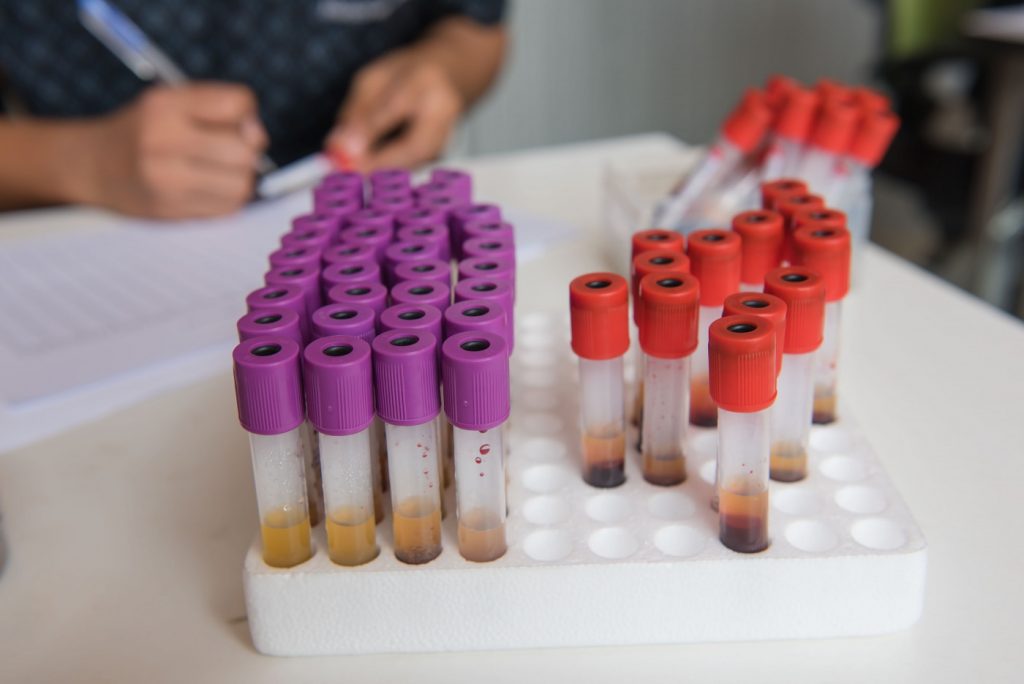Prenatal Enrollment Yields Faster Results from Newborn Screening

Prenatal enrollment of newborns for spinal muscular atrophy (SMA) screening leads to faster results than recruitment after birth, according to findings from an Early Check pilot study in North Carolina.
While most results were obtained within a timeframe that would allow treatment to begin before symptom onset — key to achieve better outcomes — the data highlighted the need for further optimization to offer pre-symptomatic treatment to all newborns, the researchers noted.
These findings may help inform forthcoming expansion of regular newborn screening in North Carolina to include SMA, and policy decisions regarding the implementation of population-wide SMA newborn screening.
The study, “A Voluntary Statewide Newborn Screening Pilot for Spinal Muscular Atrophy: Results from Early Check,” was published in the International Journal of Neonatal Screening.
SMA, the most common genetic cause of death in infants and children, is caused mainly by mutations in both copies of the SMN1 gene, affecting the production of SMN, a protein essential for motor neuron and muscle health.
The existence of a second SMN gene, called SMN2, partly compensates for the loss of SMN1-produced SMN. Typically, the more SMN2 gene copies a person has, the less severe the disease.
People with only one defective SMN1 copy will not develop SMA, but will be carriers, meaning they can pass the mutation to their children.
Given the approval of a first SMA treatment — Spinraza, by Biogen — in late 2016, and the proven importance of early detection and treatment in preventing SMA-associated lifelong disability, an increasing number of countries have implemented NBS for the disease.
Notably, SMA was added to the U.S. Recommended Uniform Screening Panel for newborns in 2018, and “as of January 2021, over half of the states have implemented NBS for SMA,” the researchers wrote.
Early Check, a North Carolina voluntary newborn screening (NBS) program developed by RTI International, allows parents to choose additional, free testing for rare, serious genetic diseases, such as SMA, for their baby beyond the state’s standard NBS panel.
The goal “is to demonstrate the feasibility and acceptability of statewide screening and follow-up for inborn conditions, inform public policy, and support U.S. Recommended Uniform Screening Panel (RUSP) nominations,” the research team added.
Early Check began optional NBS for SMA in October 2018, which will continue through this spring. Two other diseases are now part of Early Check’s panel: fragile X syndrome and Duchenne muscular dystrophy.
The program uses the same blood sample taken for the regular screening panel, and new and expectant mothers can sign up online from their second trimester (13 weeks of gestation) until four weeks after their child’s birth.
Researchers now have now reported Early Check results for SMA NBS from October 2018 through December 2020.
A total of 12,065 newborns were enrolled (932 before birth, prenatally; and 11,133 after birth, postnatally), representing about 5% of the North Carolina newborn population.
The remote recruitment strategy “proved to be effective even throughout the COVID-19 pandemic, during which in-person access to parents has been severely limited,” but the low enrollment volume demonstrated “the major challenge of implementing a feasible and practicable statewide research study,” the team wrote.
Two newborns had a screen-positive result (reported between 10 and 17 days after birth), and following external lab tests confirmed a diagnosis of severe, early-onset SMA in one and the occurrence of a false-positive in the other.
The true positive child was born of two known SMA carriers, and a previous, independent non-invasive prenatal test had suggested low risk for the baby to have the disease. The newborn was given Spinraza at 1 month of age, when symptoms were first observed, and motor improvements were already detected one month later.
Of note, treatment with Zolgensma was not possible due to the child’s high levels of antibodies against the modified virus used by the gene therapy to deliver SMN1 to cells.
The newborn with the false-positive result was found to be an SMA carrier, and was diagnosed later with a rare genetic blood disorder associated with low counts of white blood cells, which may have influenced the screening result, the team noted.
In addition, the median time of return of results from routine state NBS was five days after birth, while Early Check results were provided at a median of 13 days after birth in newborns enrolled prenatally and 21 days for babies recruited postnatally.
This time difference between regular and Early Check NBS results is due mainly to the fact that all state screening must be completed prior to Early Check testing and that the latter is not performed daily for all conditions.
“The difference between obtaining actionable results for pre- and postnatally enrolled babies could be critical for conditions such as SMA, where babies benefit the most if treatment is initiated presymptomatically,” the researchers wrote.
While most results were reported within a time frame that allowed essential treatment early in life, “further optimization of the enrollment and screening pipeline is needed to ensure that optional post state NBS is completed and a path to presymptomatic treatment is offered to all newborns in a timely manner,” the team added.
The pilot project “worked in identifying a child with SMA and facilitating a path to early treatment,” and “provided important information about SMA screening in anticipation of forthcoming statewide expansion as part of regular NBS,” the researchers concluded.
.pf-button.pf-button-excerpt { display: none; }
The post Prenatal Enrollment Yields Faster Results from Newborn Screening appeared first on SMA News Today.



